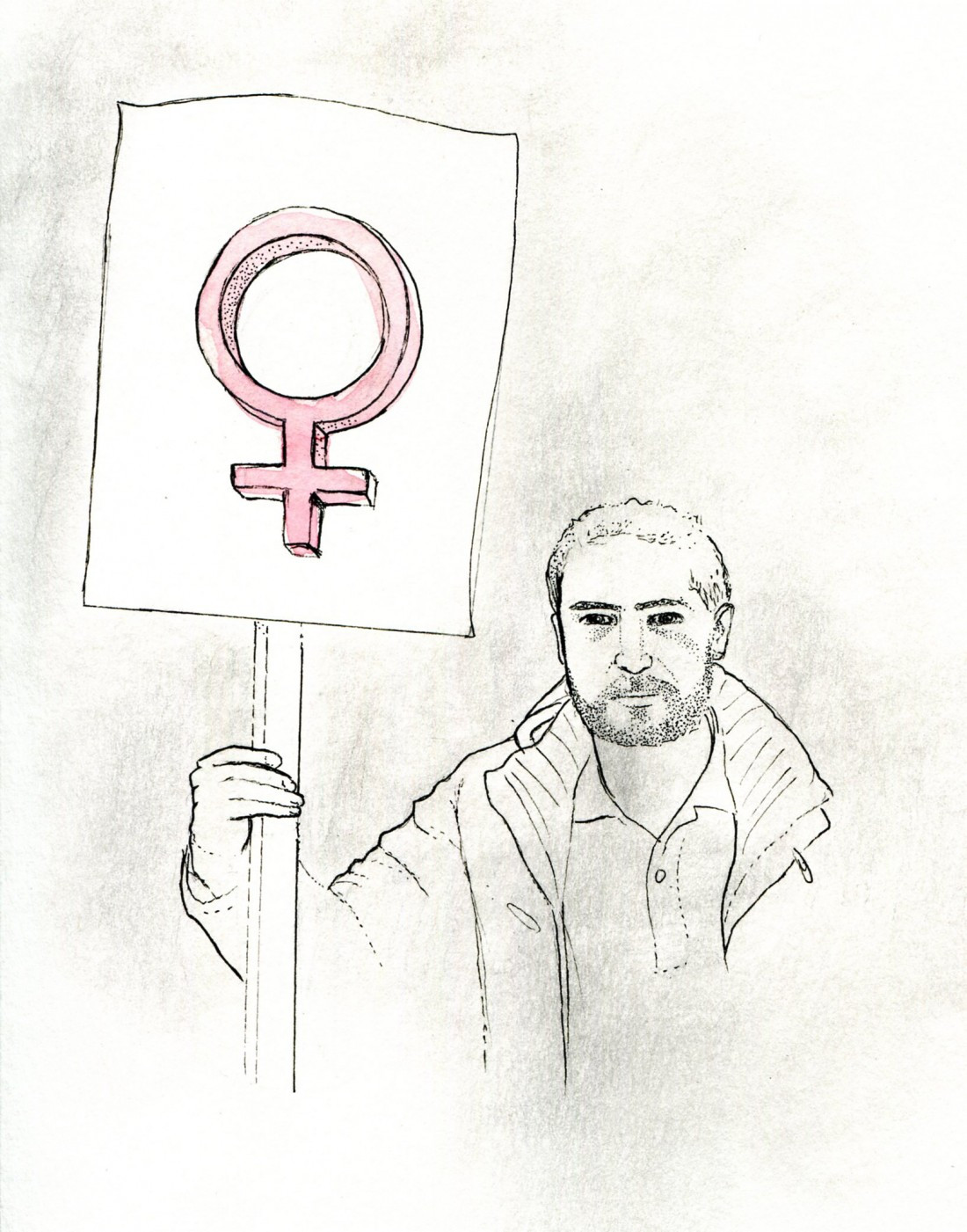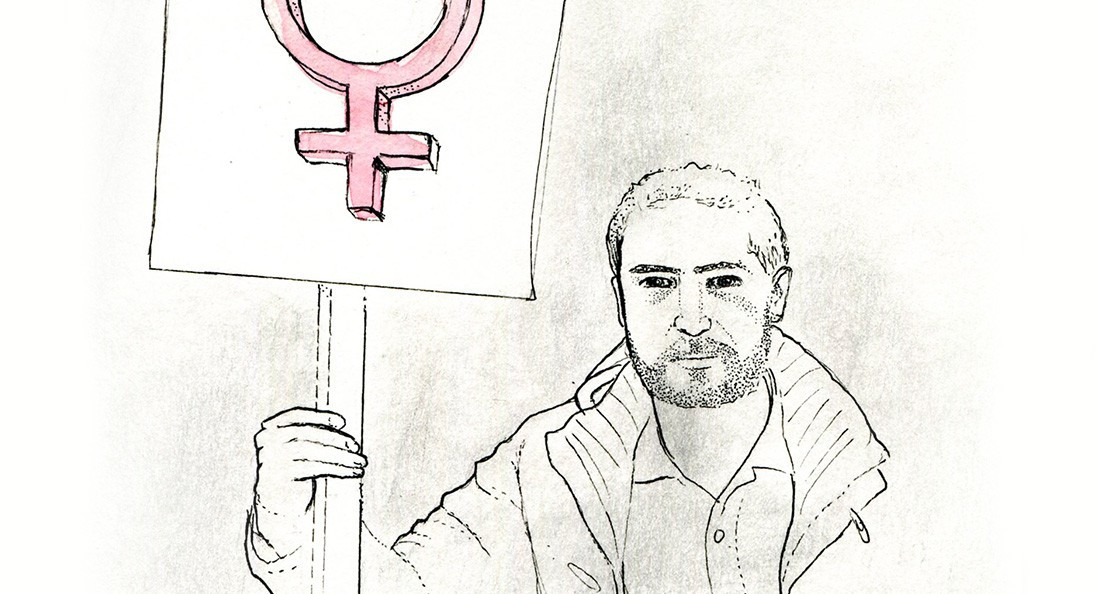How to be a better ally to women
Simple steps for men in the women’s movement
Gender is fluid, and not some clear-cut Venus versus Mars binary, but many issues tend to disadvantage those who present as women. So the distinction is important, and, as a general rule, women feel men can be better allies in the work of ending gender-based inequities and violence.
There are many men who work hard to give women more space and stand with them in the struggle to be heard and treated equally. And most want equality. However, a common reaction from men when women speak up about inequality is defensiveness, anger or feelings about feminism shutting them out or being outdated. It’s unfortunate but understandable. No one likes to be singled out and painted as the bad guy.
But we still live in a sexist world. Women tend to make about 73 per cent of a man’s salary for the same work. Eighty-two per cent of known sexual assault victims under 18 are girls. Many women don’t feel safe walking at night, and many Indigenous women and women of colour don’t feel safe walking at any time. Women are over twice as likely to report being victims of sexual assault, many more don’t report being victims and less than 25 per cent of cases that actually make it to court result in a guilty verdict.
This fight isn’t over a finite “rights pie.” More for women does not mean less for men. Men also suffer from the patriarchy, gender norms and unrealistic body images. And they – especially if they’re white and in middle/upper classes – will keep having privilege and power, even if we address the wage gap and see more women in power.
Being a good ally is a challenge and takes work. But it’s important not to turn away when it gets hard. Women may get frustrated and mad, but they’ve been fighting to be heard for a long time and are impatient. The road to being a good ally starts with accepting criticism and apologizing for mistakes.
It is also important to be aware that within the umbrella of the identity of “women” are many intersecting identities – such as race, ability, income, sexuality, body type, etc. – that can further marginalize a person. The advice in this article is also one for women with privilege
to take.
Speak up and shut up
Stop talking so much. Take some time to notice dynamics in mixed groups. You may feel like you don’t take up too much space, but you just might. And if you don’t, you’re a rare bird.
Studies have shown that men tend to interrupt and dominate conversations. In one, men were taking up 75 per cent of the conversation. Work on some self-awareness. Ask women if they feel like they are being heard and listened to. (Then, of course, listen to their answers).
This is where listening and awareness can result in powerful action. If you’re asked to speak on a panel, ask if there are any women or other marginalized voices involved. If not, turn it down.
Recusing oneself doesn’t mean never speaking again. It means, ironically, speaking out. Saying you won't participate sends a strong message and wakes people up. This is especially so if you’re a white, cisgender, heterosexual, middle/upper class and/or able-bodied man.
Take a look around at your world. Are there spaces you’re in that are mostly male? That board you’re on, your workplace, a conference, your band? This is where we need you. Speak up and demand change.
And let’s talk about the “locker room” –spaces that are dominated by heterosexual men, spaces where Donald Trump thinks it’s okay to demean women. Maybe there were times you might have laughed along (maybe uncomfortably) at a sexist joke. Or high-fived your friend for his shirt that says “Your Girlfriend is Rated E for Everyone.” Or liked your friend’s post about chicks being crazy or some dude throwing “like a girl.”
This can be the breeding ground for the disrespect and violence women experience out in the real world. It’s not harmless. Unless you are risking your own safety, women need you to speak out. Hold the men in your life accountable. And if you’re the one doing this stuff? Just stop.
Call yourself a feminist and encourage your male friends to do so. It’s your word, too. You are signalling to us that you believe and support us. But please don’t accept props for it. Joseph Gordon-Levitt gets hailed as a hero, while Meryl Streep just has her panties in a twist. Tell folks this is a women-led movement and help women be heard.
When your female friend is calling out sexism, support her and believe her. Women often get eye rolls, jokes about armpit hair and retorts like “But what about men’s rights?” It hurts, and without allies, it feels lonely – especially for women who are with those who claim to be friends.
Chances are, if you’re making a joke about how you’re mansplaining, you’re probably mansplaining. Try to notice when you assume what a woman knows about something. Maybe check in with her before telling her all about how the markets work.
Words into actions
If you are walking behind a woman at night, know that she might be scared. You may think that’s ridiculous, because you’re too timid to even use mouse traps, but there may not be a safe vibe about you.
Women have been taught many tricks for avoiding danger, like talking on our phones, carrying alarms/whistles or changing our route so we can see if we’re being followed or to ensure someone doesn’t know where we live. There are small actions that can help reduce a woman’s fear. You can cross the street or change directions, so as not to walk behind her, or cross paths. Or be absorbed in a call on your cell phone.
When you say that your buddy just got “raped” out there on the field, do you know what some women hear? “My rape just raped rape on the rapey rape rape.”
Make sure there is a garbage in your bathroom with a lid and a bag. You may not have much need for it, but when women come over, they might. And most will be grateful not to risk clogging the toilet or having you see a bloody tampon when they or you might not be comfortable with that. Better yet? A box of pads or tampons isn’t much money and can come to the rescue. This is ally-ship at its simplest. You are saying that you understand. It’s sweet.
Do you have a hard time listening because she’s overly emotional or taking something way too seriously or crying for no good reason or on the rag? Nope, you don’t get it. Stop criticizing and start believing. Listen with your whole heart.
Denise is the communications and fundraising director at the West Central Women’s Resource Centre.

Published in Volume 71, Number 25 of The Uniter (March 23, 2017)







